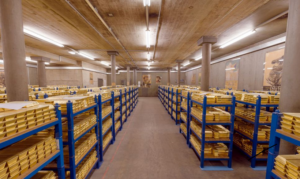Several key factors affect the market price of precious metal commodities including gold and silver. These include the supply and strength of cash currencies around the world, the performance of other commodities, government regulations and central banking activities, and of course direct demand for gold – if people would pay more, they will pay more.
How other commodities affect the price of gold
Changes in gold prices can be closely correlated to fluctuations in the price of other metal commodities including silver, zinc and copper. This is largely because the process of extracting these metals from their respective ores is similar, hence if there is an increase in the cost of chemicals (such as cyanide and mercury) used to extract gold then the price of the precious metal will also rise. These metals are also used in the making of computing components hence they are all affected by demand from the electronics industry.
But if most metals go up in value is this what made gold go up, or is the factor causing most metals to go up the same factor causing gold to go up!
How the price of gold is affected by central bank activities
 Gold, along with key currencies such as the US Dollar, is typically held in reserve by central banks as a ‘safe haven’ to guard against major economic crashes. Hence, if a central bank decides to sell part of its gold reserve, the market price will decrease due to the extra supply, and by contrast if they purchase large stocks of gold to diversify their reserves away from currencies then the price of gold will increase due to more demand.
Gold, along with key currencies such as the US Dollar, is typically held in reserve by central banks as a ‘safe haven’ to guard against major economic crashes. Hence, if a central bank decides to sell part of its gold reserve, the market price will decrease due to the extra supply, and by contrast if they purchase large stocks of gold to diversify their reserves away from currencies then the price of gold will increase due to more demand.
How the US economy influences gold price
Central banks around the world use gold reserves to safeguard their economies against economic stresses in times of recession. When the British Pound or US Dollar is strong, it can be used more effectively in trade and investment, hence in these times it is preferred over gold which lowers the price of the precious metal. However, if the economy is weak due to debt, trade imbalance and uncertainty, then investors will favour gold, thus increasing its price.

Supply & demand
As with all commodities, the price of gold is hugely affected by supply and demand, for instance in periods of economic growth people throughout the world purchase luxury jewellery items which drives price increases. Moreover gold is a finite natural resource, therefore as mines are depleted it becomes more challenging to locate precious metals and extract them from their ores, meaning supply becomes more constrained which in turn drives up the price of gold.
